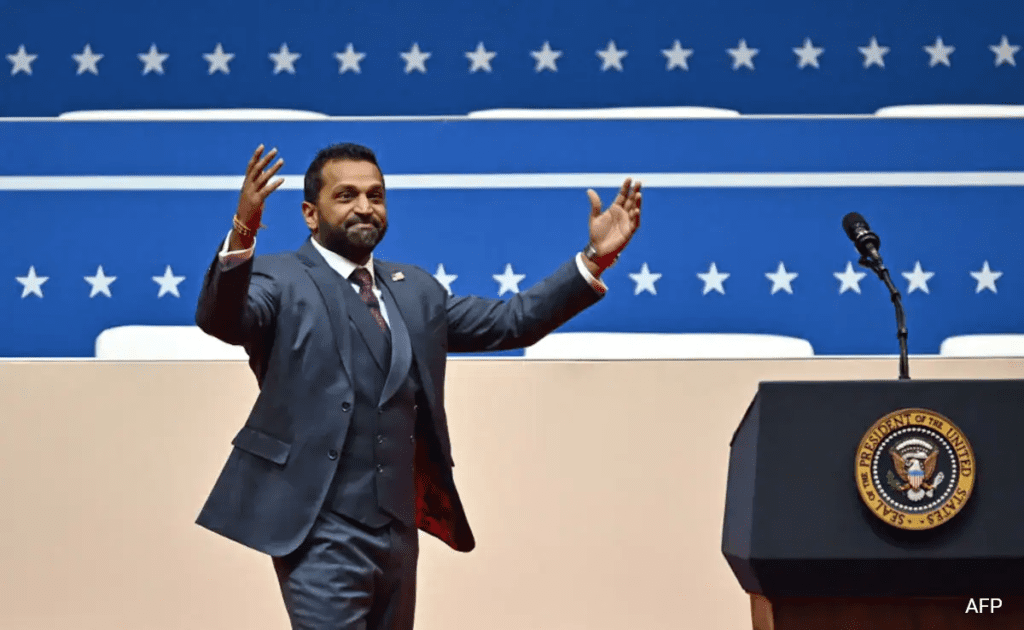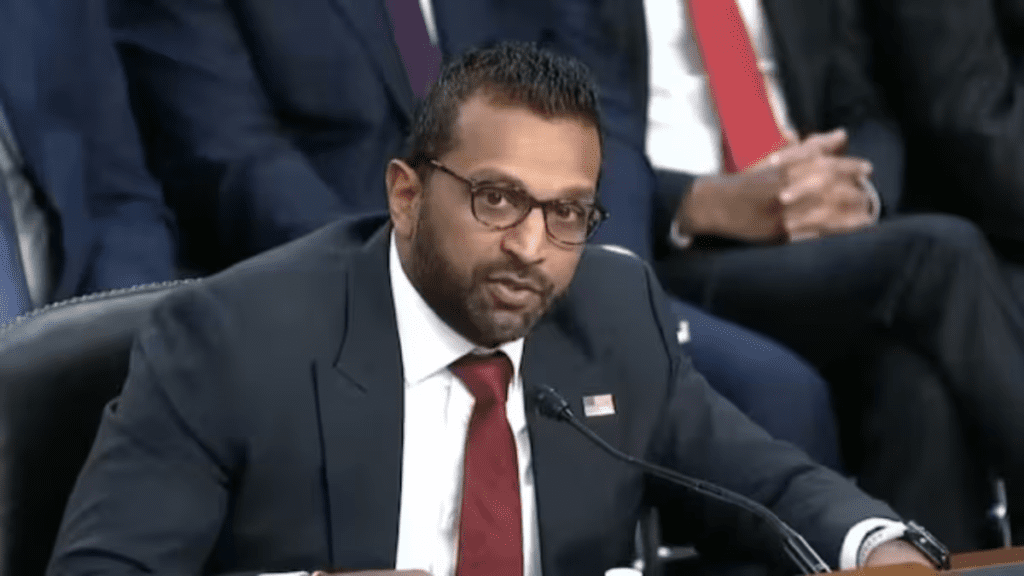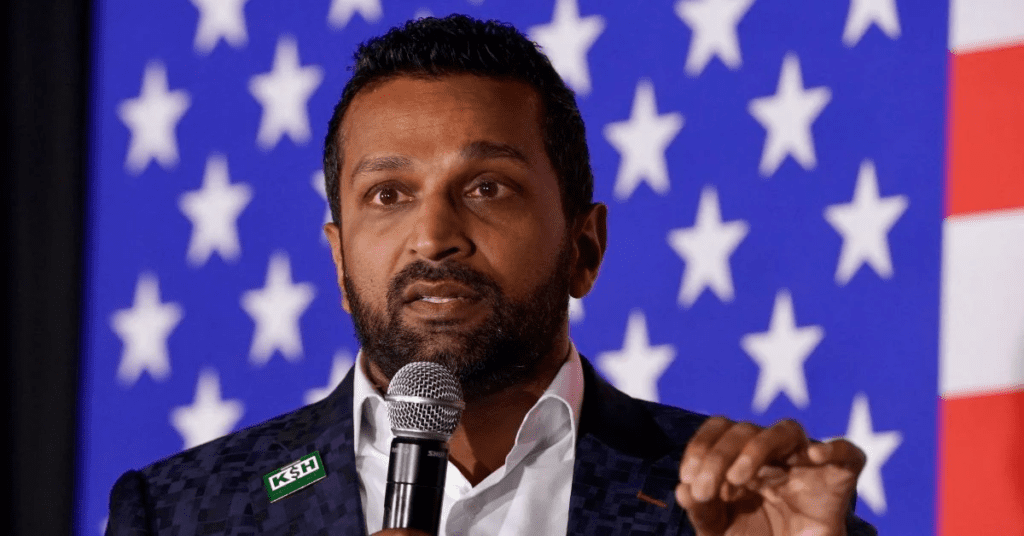Kash Patel Appointed Acting ATF Director: A New Era for Law Enforcement and Second Amendment Rights

On February 23, 2025, the United States witnessed a significant shift in its law enforcement landscape with the announcement that Kash Patel, the newly sworn-in Director of the Federal Bureau of Investigation (FBI), is expected to take on an additional role as the Acting Director of the Bureau of Alcohol, Tobacco, Firearms and Explosives (ATF).
This dual appointment, a rare move in the history of American federal agencies, signals a bold new direction under President Donald Trump’s administration. Kash Patel, a staunch Trump loyalist with a reputation for challenging bureaucratic overreach, now holds the reins of two of the Justice Department’s most powerful entities. This development has sparked a mix of enthusiasm, controversy, and speculation about what lies ahead for law enforcement, gun rights, and the broader political climate.
Who is Kash Patel?
Kash Patel is no stranger to high-stakes roles or polarizing debates. Born on February 25, 1980, in New York to Indian-American parents with roots in Gujarat, Kash Patel has risen from a Justice Department counterterrorism prosecutor to one of the most influential figures in Trump’s orbit.
His career trajectory includes key positions during Trump’s first administration, such as roles in the Office of the Director of National Intelligence and the Department of Defense. Kash Patel’s involvement on January 6, 2021, where he worked within the Defense Secretary’s suite to coordinate responses to the Capitol unrest, further cemented his reputation as a hands-on operator in times of crisis.
Kash Patel’s ascent to FBI Director was confirmed by a narrow 51-49 Senate vote on February 20, 2025, reflecting the contentious nature of his appointment. Critics, particularly Democrats, have voiced concerns over his unwavering loyalty to Trump and his outspoken criticism of the so-called “deep state.”
Supporters, however, see him as a reformer unafraid to tackle entrenched inefficiencies and abuses of power within federal agencies. His swearing-in as FBI Director on February 21, 2025, marked a historic moment as the first Indian-American and Hindu to lead the agency, with Patel taking his oath on the Bhagavad Gita in a ceremony officiated by Attorney General Pam Bondi.

The ATF Appointment: A Strategic Move
The decision to name Kash Patel Acting ATF Director, reported by sources across major news outlets including CBS News, ABC News, and Fox News, is pivotal for the agency. The ATF, tasked with enforcing federal laws on firearms, explosives, alcohol, and tobacco, has long been a lightning rod for controversy.
With approximately 5,500 employees, the agency oversees gun dealer licensing, traces firearms used in crimes, and combats illegal trafficking. Yet, it has faced persistent criticism from conservatives and gun rights advocates who argue it oversteps its mandate, particularly through regulations targeting “ghost guns” and expanding background checks—measures introduced under the Biden administration.
Kash Patel’s appointment follows a series of shakeups within the ATF. Just days prior, Attorney General Bondi fired the agency’s Chief Counsel, Pamela Hicks, accusing her of enabling efforts to “weaponize” the Justice Department against gun owners.
This move and Kash Patel’s new role suggest a deliberate pivot in the agency’s focus. Sources indicate that Patel is expected to be sworn in as Acting ATF Director as early as the following week, replacing the current acting director, Marvin Richardson. The timing aligns with broader efforts by the Trump administration to realign federal agencies with its policy priorities, including a stronger emphasis on border security and a lighter touch on firearm regulation.
Implications for Gun Rights and Law Enforcement
Kash Patel’s dual leadership of the FBI and ATF is poised to have far-reaching implications, particularly for the Second Amendment. During Trump’s campaign, he repeatedly criticized the ATF for what he called heavy-handed tactics, such as revoking gun licenses on minor technicalities.
Kash Patel, who has earned praise from groups like Gun Owners of America for championing gun rights, is expected to steer the ATF away from its recent regulatory focus and toward a mission more aligned with conservative values. This could mean scaling back rules on pistol braces and ghost guns, which have been flashpoints in the gun control debate, and redirecting resources to address violent crime and illegal firearms trafficking.
For law enforcement more broadly, Kash Patel’s appointment signals a continuation of his efforts to decentralize and reform federal operations. As FBI Director, he has already announced plans to relocate 1,500 staff from Washington, D.C., to field offices nationwide, including 500 to a facility in Huntsville, Alabama.
This move, he argues, will enhance community-focused crime prevention and reduce the concentration of power in the capital. Extending this philosophy to the ATF could see similar efforts to empower local offices and streamline operations, potentially at the expense of the agency’s traditional regulatory role.

Controversy and Criticism
Unsurprisingly, Kash Patel’s expanded role has not been without pushback. Democrats and some moderate Republicans have expressed alarm at the concentration of power in the hands of a figure so closely tied to Trump. Senator Dick Durbin, a vocal critic, previously called Kash Patel “the worst choice imaginable” for FBI Director, citing his promises to target perceived adversaries of the president. The addition of the ATF portfolio only amplifies these concerns, with opponents warning that Patel could use his authority to settle political scores rather than uphold impartial justice.
The timing of the appointment also raises questions about stability within the Justice Department. The abrupt dismissal of ATF Chief Counsel Hicks and the rapid transition to Kash Patel’s leadership suggests a purge of officials viewed as out of step with the administration’s agenda. Congressional Republicans, who have proposed $188 million in cuts to the ATF’s budget for 2025, may see Kash Patel as an ally in their push to curb the agency’s scope—or even dismantle it entirely, as some have advocated.
A Dual Role: Precedent and Practicality
While unusual, Kash Patel’s dual role is not without precedent. Past administrations have occasionally tasked officials with overseeing multiple agencies during transitions or crises. However, the scale of responsibility—leading both the FBI, with its vast investigative reach, and the ATF, with its specialized enforcement duties—presents a unique challenge. Patel’s supporters argue that his experience and no-nonsense approach make him uniquely suited to handle both, while sceptics question whether one individual can effectively manage two agencies with such distinct missions.
Practically, Kash Patel’s tenure as Acting ATF Director may be temporary, serving as a stopgap until a permanent appointee is named. Yet, his influence during this period could set the tone for years to come, particularly if he implements sweeping changes to the agency’s priorities or structure. His early actions as FBI Director, such as instructing staff to pause responses to a productivity inquiry from the Office of Personnel Management, suggest a willingness to assert control and challenge established norms—a trait likely to carry over to the ATF.

What’s Next?
As Patel prepares to assume his dual roles, the nation watches closely. For gun owners and Second Amendment advocates, his appointment is a victory, promising a rollback of what they see as federal overreach. For critics, it’s a troubling sign of politicization within law enforcement. For the average American, it’s a development that could reshape how crime, firearms, and federal authority intersect in daily life.
In the coming weeks, Patel’s swearing-in as Acting ATF Director will formalize this new chapter. His first moves—whether policy shifts, personnel changes, or public statements—will offer clues about his vision for the agency and its place in Trump’s broader agenda. One thing is certain: with Kash Patel at the helm of both the FBI and ATF, the status quo is off the table. Whether this ushers in a new era of accountability or a contentious battle over power remains to be seen, but the stakes couldn’t be higher.
Conclusion
Kash Patel’s appointment as Acting ATF Director, alongside his role as FBI Director, marks a defining moment for the Trump administration and its approach to law enforcement. A figure of both admiration and apprehension, Patel embodies the polarizing dynamics of the current political landscape. As he steps into this dual leadership position, the nation braces for change—whether it’s a triumph for reform or a test of institutional resilience, only time will tell. For now, all eyes are on Patel as he navigates this unprecedented responsibility, poised to leave an indelible mark on America’s justice system.


